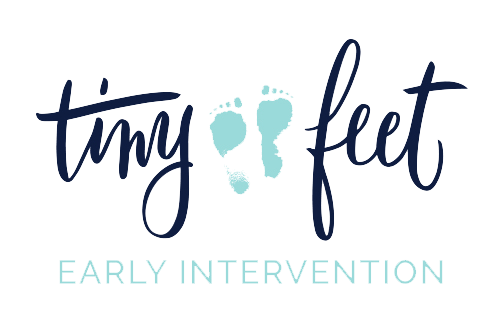Early Intervention is centered on looking at infant & toddler development with parents, setting appropriate goals, and making a plan to meet those goals, all for the purpose of helping children succeed in lessening or closing the gap with developmental milestones. So the question is- Does Early Intervention actually lead to success? Is it worth the putting in the effort to make the referral? Is it worth the time you spend receiving services? I wouldn't be here if I didn't believe whole-heartedly in Early Intervention. However, let me share some research so you can see what a powerful service Early Intervention truly is-
- Early Intervention research was performed on a group of mentally disabled children in 1958. This research showed that "the development of sound intelligence depends on appropriate stimulation in the environment." (Cowdery & Allen, 2009, p. 26). This piece of research lead to the formation of Head Start, but also demonstrated the power interventions can have on children with the most significant disabilities.
- Approximately one-fifth of all infants born annually are at risk for developmental disabilities (Haber, 1991). Of these, approximately one-fourth will manifest significant delays by age 5.
- Neural circuits, which create the foundation for learning, behavior and health, are most flexible or “plastic” during the first three years of life. Over time, they become increasingly difficult to change. The brain is strengthened by positive early experiences, especially stable relationships with caring and responsive adults, safe and supportive environments, and appropriate nutrition. High quality early intervention services can change a child’s developmental trajectory and improve outcomes for children, families, and communities. ("The Importace Of Early Intervention For Infants And Toddlers With Disabilities And Their Families")
- Early identification of children with developmental disabilities leads to an effective therapy of conditions for which definitive treatment is available. However, even in those instances in which the condition cannot be fully reversed, early intervention improves children's outcomes and enables families to develop the strategies and obtain the resources for successful family functioning" (Committee on Children with Disabilities, 1994, page 863).
- “Early Intervention for a broad spectrum of communication disorders affecting young children can be very effective in eliminating those disorders or at least mitigating their impact on a child’s later speech and language development” (p. 403).
- 71% - 76% of children receiving Early Intervention services demonstrated improvement across performance areas, including social relationships, reasoning, problem solving, feeding, dressing, and other self-care.
- 52% -64% of children receiving Early Intervention met developmental age expectations at age 3.
- 90% of parents reported that Early Intervention service had improved their ability to help their children develop and learn.
- Early Intervention provides different sources of social support to the family, which reduces the impact of stress on the family and enhances parent-child interaction and consequently child development.
- Well-designed early childhood interventions have been found to generate a return to society ranging from $1.80 to $17.07 for each dollar spent on the program.
Allen, E.K., Cowdery, G.E. (2009). The Exceptional Child: inclusion in early childhood education. United States of America: Thompson Delmar Learning
Derrington, T., Shapiro, B. & Smith, B. (1999). The effectiveness of Early Intervention Services. Unpublished manuscript.
"The Important Of Early Intervention For Infants And Toddlers With Disabilities And Their Families". NECTAC. N.p., 2011. Web. 15 Nov. 2016.
Case-Smith, J. (2013). From the Desk of the Great Editor- Systematic reviews of the effectiveness of interventions used in occupational therapy early childhood services. American Journal of Occupational Therapy, 67, 379-382.
"Proven Benefits Of Early Childhood Interventions | RAND". Rand.org. N.p., 2016. Web. 16 Nov. 2016.














